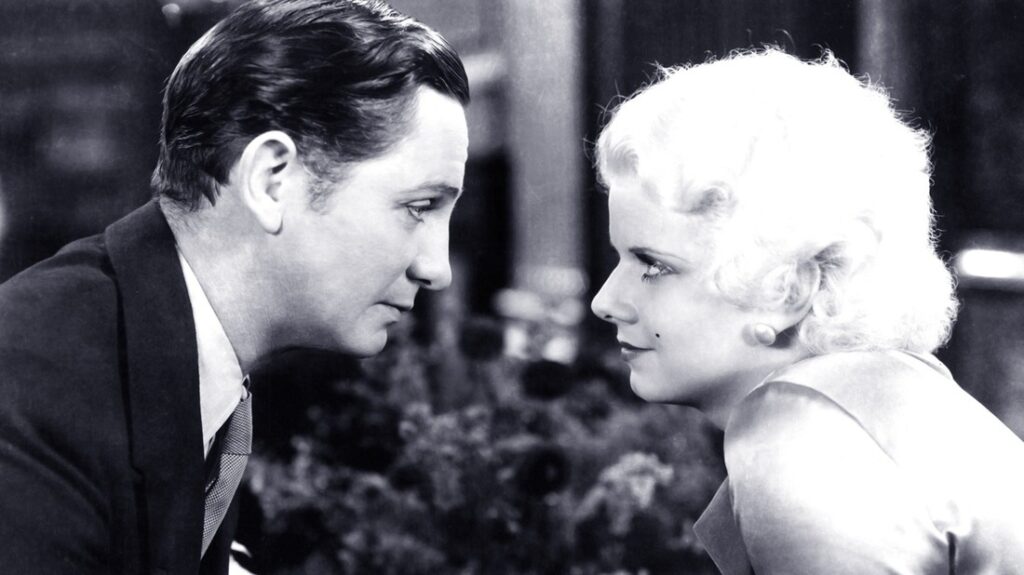Classic Film: Platinum Blonde
Written by Ian Thomas Malone, Posted in Blog, Movie Reviews, Pop Culture
There is a certain timeless nature to comedy centered around class differences. The drama at the core of Frank Capra’s 1931 film Platinum Blonde could resonate with modern audiences if the film were released today. The question of whether the film brings anything new to the equation, whether to modern viewers or those who saw the film nearly a hundred years ago is a different story.
Stew Smith (Robert Williams) is a hardworking reporter only making 75 dollars a week. An assignment sends him into the orbit of the wealthy Schuyler family, where playboy Michael (Don Dillaway) is caught up in a blackmail scandal. Taking pity on the family, driven by his feelings toward daughter Ann (Jean Harlow), Stew goes easy with his reporting. Stew and Ann quickly fall in love and elope.
Much of the film’s comedy derives from Stew’s discomfort at his integration into the Schuyler way of life. He spurns Ann’s efforts to clean him up, quickly dismissing a valet hired to attend to him. In particular, he absolutely refuses to wear garters. A chance encounter with his best friend from the paper, Gallagher (Loretta Young) stirs up old passions, putting Stew on a natural collision course with his new overbearing family.
Platinum Blonde is mostly noteworthy for being Williams’ only leading role, as the actor died just three days after the film’s premiere. Williams brings plenty of range to the stock archetype that largely defines Stew. Despite having two fine actresses as leading ladies, Williams puts in most of his best work opposite Smythe (Halliwell Hobbes), the butler. Their interactions provide most of the film’s comedy.
Strong performances and a competent showing from Capra are sunk by a meandering screenplay that gives the actors little to work with. While Stew’s apprehension toward a life solely known as “Ann Schuyler’s husband” provides much of the drama, the film constantly hints at a subplot concerning Stew’s aspirations as a playwright that don’t really come into focus until late in the third act. Stew claims to want to write, suffering from writer’s block and a lack of inspiration, an underwhelming dilemma for the viewers to watch unfold on the screen. While fairly charming at first, Stew’s constant negativity grows tiresome as the narrative rolls along.
The 89-minute runtime feels exceedingly drawn out. Ostensibly billed as a comedy, there’s very little to laugh at throughout the film, but it’s hardly much of a drama either. Capra does make some strides toward redeeming his picture down the stretch, but as a whole, the experience plays out as a first draft that struggled to tie everything together. As a time capsule, the film has some value, showcasing Williams’ ample potential, but Platinum Blonde is too unfocused to leave much of a lasting impression.











